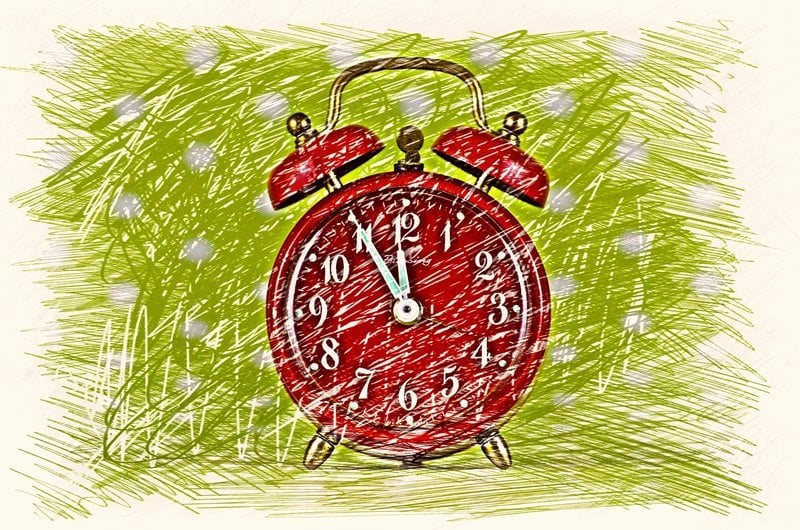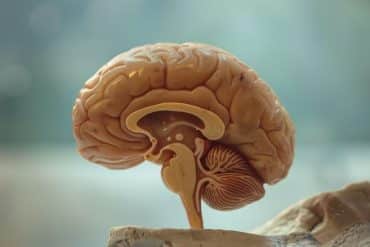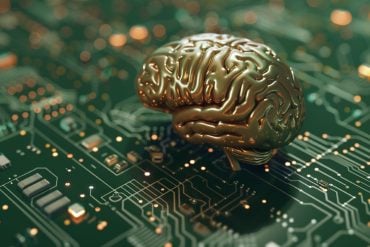Summary: Waking to melodic tunes from your alarm clock helps reduce sleep inertia.
Source: RMIT University
Beep beep beep or Beach Boys? The sounds you wake up to could be affecting how groggy and clumsy you are in the morning, according to new research.
A study by RMIT University suggests melodic alarms could improve alertness levels, with harsh alarm tones linked to increased levels of morning grogginess.
The surprising finding, published in PLoS One, could have important implications for anyone who needs to perform at their peak soon after waking, such as shift workers and emergency first responders.
Lead author, RMIT doctoral researcher Stuart McFarlane, said morning grogginess – or sleep inertia – was a serious problem in our 24-hour world.
“If you don’t wake properly, your work performance can be degraded for periods up to four hours, and that has been linked to major accidents,” McFarlane said.
“You would assume that a startling ‘beep beep beep’ alarm would improve alertness, but our data revealed that melodic alarms may be the key element. This was unexpected.”
“Although more research is needed to better understand the precise combination of melody and rhythm that might work best, considering that most people use alarms to wake up, the sound you choose may have important ramifications.
“This is particularly important for people who might work in dangerous situations shortly after waking, like firefighters or pilots, but also for anyone who has to be rapidly alert, such as someone driving to hospital in an emergency.”
The research involved 50 participants, using a specially designed online survey that enable them to remotely contribute to the study from the comfort of their own home.

Each person logged what type of sound they used to wake up, and then rated their grogginess and alertness levels against standardised sleep inertia criteria.
Co-author Associate Professor Adrian Dyer, from RMIT’s School of Media and Communication and Digital Ethnography Research Centre, said the research could help contribute to the design of more efficient interventions for people to use on their own devices to wake up properly.
“This study is important, as even NASA astronauts report that sleep inertia affects their performance on the International Space Station,” Dyer said.
“We think that a harsh ‘beep beep beep’ might work to disrupt or confuse our brain activity when waking, while a more melodic sound like the Beach Boys ‘Good Vibrations’ or The Cure’s ‘Close to Me’ may help us transition to a waking state in a more effective way.
“If we can continue to improve our understanding of the connection between sounds and waking state, there could be potential for applications in many fields, particularly with recent advancements in sleep technology and artificial intelligence.”
Source:
RMIT University
Media Contacts:
Gosia Kaszubska – RMIT University
Image Source:
The image is in the public domain.
Original Research: Open access
“Alarm tones, music and their elements: Analysis of reported waking sounds to counteract sleep inertia”. Stuart J. McFarlane, Jair E. Garcia, Darrin S. Verhagen, Adrian G. Dyer.
PLOS ONE doi:10.1371/journal.pone.0215788.
Abstract
Alarm tones, music and their elements: Analysis of reported waking sounds to counteract sleep inertia
Sleep inertia is a potentially dangerous reduction in human alertness and occurs 0–4 hours after waking. The type of sound people set as their alarm for waking has been shown to reduce the effects of sleep inertia, however, the elemental musical factors that underpin these waking sounds and their relationships remain unclear. The goal of this research is to understand how a particular sound or music chosen to assist waking may counteract sleep inertia, and more specifically, what elements of these sounds may contribute to its reduction. Through an anonymous, self-report online questionnaire, fifty participants (N = 50) reported attributes of their preferred waking sound, their feeling towards the waking sound, and perceived sleep inertia after waking. This data enabled the analysis and comparison between these responses to identify statistically significant relationships. Our results did not return any significant association between sleep inertia and the reported waking sound type, nor the subject’s feeling towards their sound. However, the analysis did reveal that a sound which is ranked as melodic by participants shows a significant relationship to reports of reductions in perceived sleep inertia, and in contrast, sound rated as neutral (neither unmelodic nor melodic) returns a significant relationship to the reports of increases in perceived sleep inertia. Additionally, our secondary analysis revealed that a sound rated as melodic is considered to be more rhythmic than a melodically neutral interpretation. Together these findings raise questions regarding the impact melody and rhythm may hold with respect to sleep inertia intensity. Considering that the implementation of auditory assisted awakening is a common occurrence, the musical elements of a chosen waking sound may be an area to further interrogate with respect to counteracting sleep inertia.






